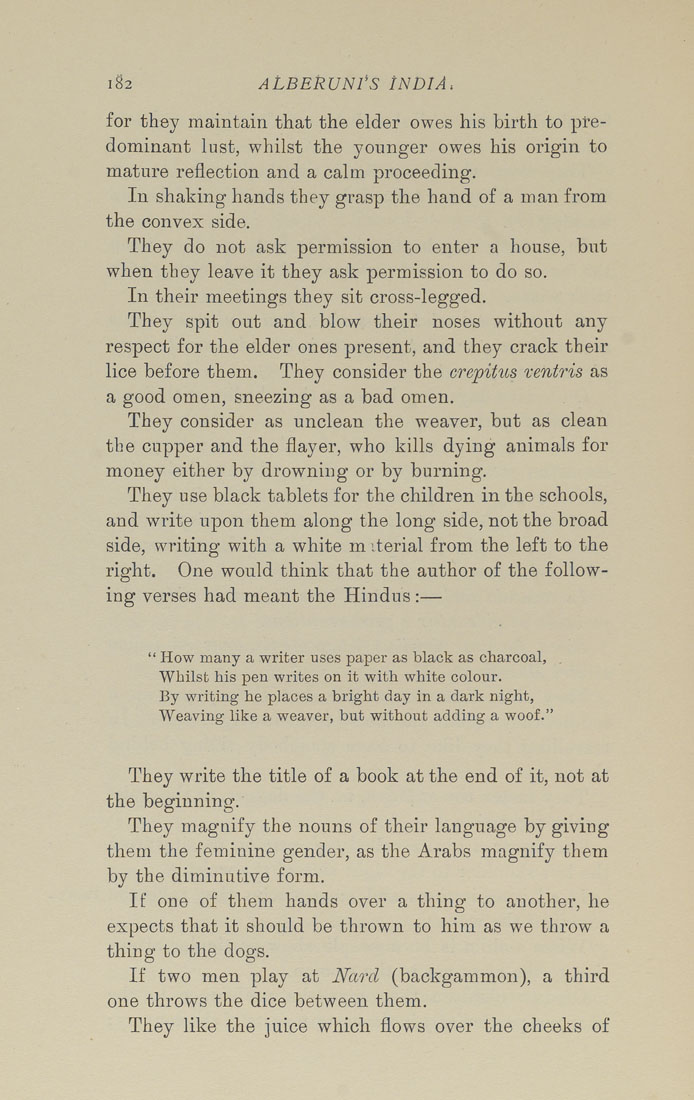Bīrūnī, Muḥammad ibn Aḥmad, Alberuni's India (v. 1)
(London : Kegan Paul, Trench, Trübner & Co., 1910.)
|
||
|
|
|
|
| Page 182 |

1^2 aLbeRunVs India. for they maintain that the elder owes his birth to pre¬ dominant lust, whilst the younger owes his origin to mature reflection and a calm proceeding. In shaking hands they grasp the hand of a man from the convex side. They do not ask permission to enter a house, but when they leave it they ask permission to do so. In their meetings they sit cross-legged. They spit out and blow their noses without any respect for the elder ones present, and they crack their lice before them. They consider the crepitus ventris as a good omen, sneezing as a bad omen. They consider as unclean the weaver, but as clean the cupper and the flayer, who kills dying animals for money either by drowning or by burning. They use black tablets for the children in the schools, and write upon them along the long side, not the broad side, writing with a white m ;terial from the left to the right. One would think that the author of the follow¬ ing verses had meant the Hindus:— " How many a writer uses paper as black as charcoal, Whilst his pen writes on it with white colour. By writing he places a bright day in a dark night. Weaving like a weaver, but without adding a woof." They write the title of a book at the end of it, not at the beginning. They magnify the nouns of their language by giving them the feminine gender, as the Arabs magnify them by the diminutive form. If one of them hands over a thing to another, he expects that it should be thrown to him as we throw a thing to the dogs. If two men play at Nard (backgammon), a third one throws the dice between them. They like the juice which flows over the cheeks of |
| Page 182 |







